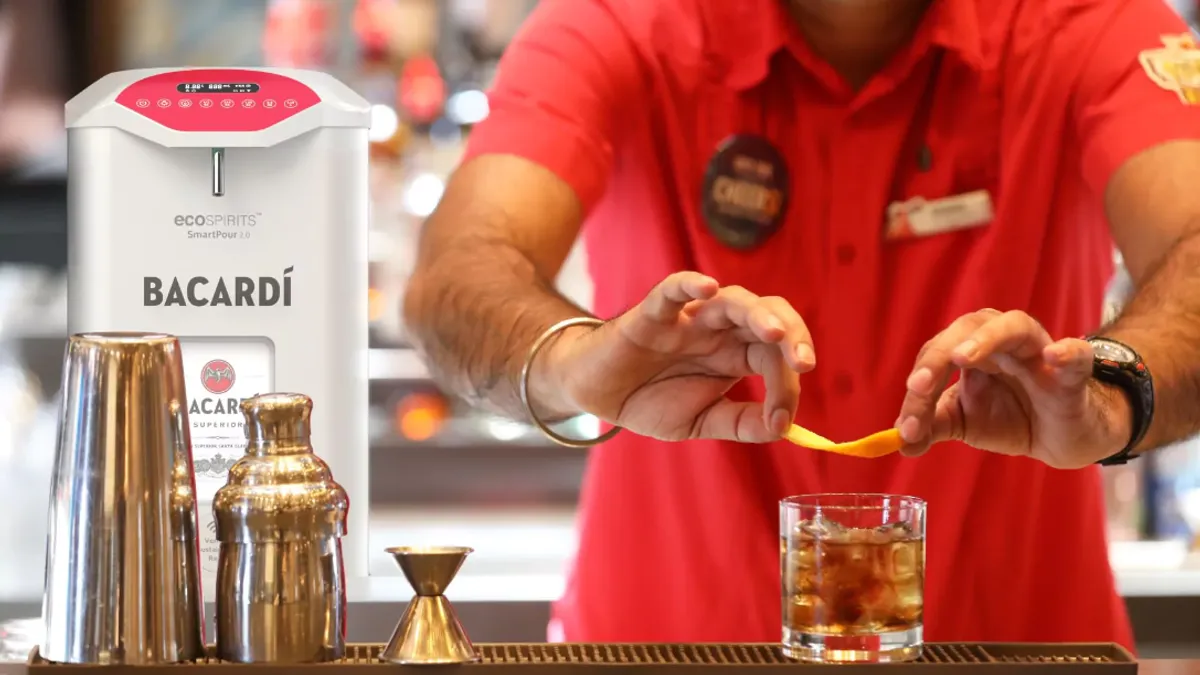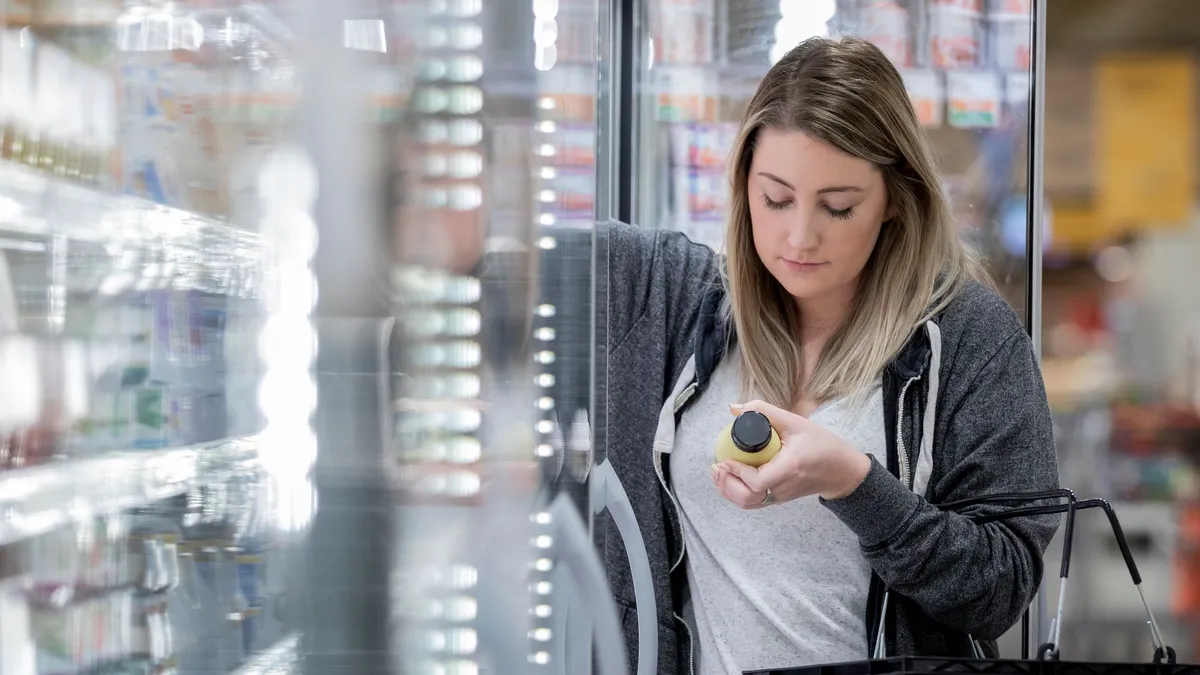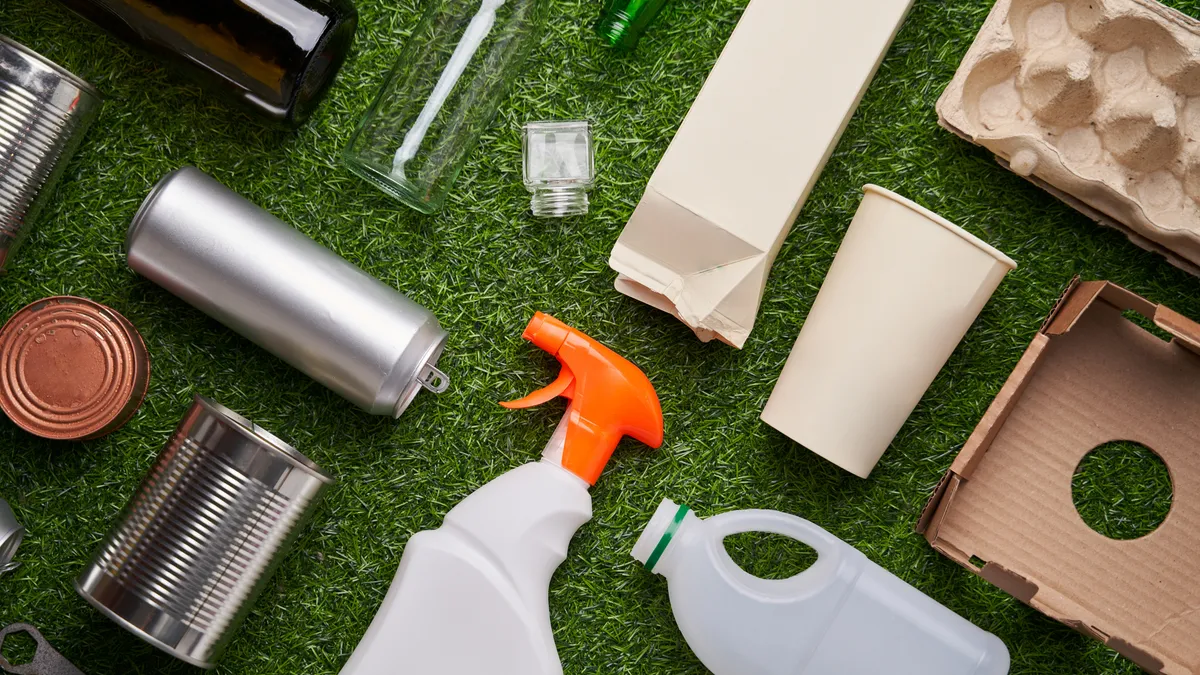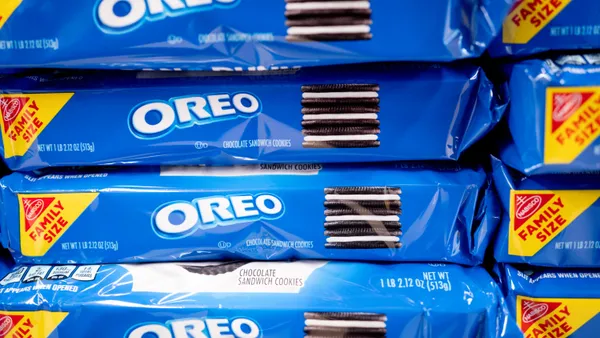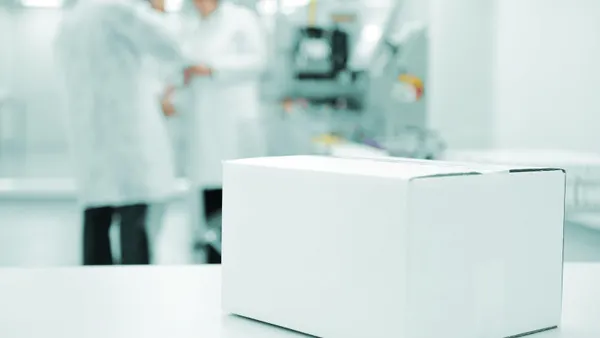Dive Brief:
- Ecospirits, a company working to eliminate packaging waste in the premium spirits supply chain, is partnering with spirits company Bacardi and cruise operator Carnival to trial a beverage service solution that could reduce single-use packaging on ships.
- During a three-month pilot on three ships operating out of Miami, Bacardi Superior rum will be served using a reusable container system developed by Ecospirits, with an aim to decrease single-use glass bottles and other packaging. Under its current process, Carnival recycles that glass, but the announcement states this new model would reduce single-use packaging by 95%, which Ecospirits CEO Paul Gabie said mostly accounts for glass bottles but also other components like caps, labels and boxes containing bottles.
- Ecospirits, founded in Singapore in 2018, continues to build out its worldwide footprint. The company’s upcoming developments and focus areas include expanding its cruise industry service and widening its U.S. presence from Florida and California to Nevada by the end of 2023 — notable given Las Vegas’ concentration of resorts, casinos and bars, said Gabie.
Dive Insight:
Reuse pilots have gained traction in other contained environments such as sports stadiums and music venues, largely to reduce single-use plastic waste associated with cups and other food service wares. The partners in Tuesday’s announcement are taking that reuse approach out to sea.
In the case of the Florida-based Carnival pilot, Gabie described that Bacardi’s rum is produced and blended in Jacksonville; that rum is shipped in bulk to Ecospirits’ plant in Cocoa Beach and processed from large stainless steel tanks into Ecospirits’ Ecotote format, which involves glass encased by a shock-resistant HDPE outer-container. Those Ecototes are moved onboard a ship, where rum is dispensed via its SmartPour device; ultimately, the Ecototes are unloaded from the ship after use for sanitizing and refilling.
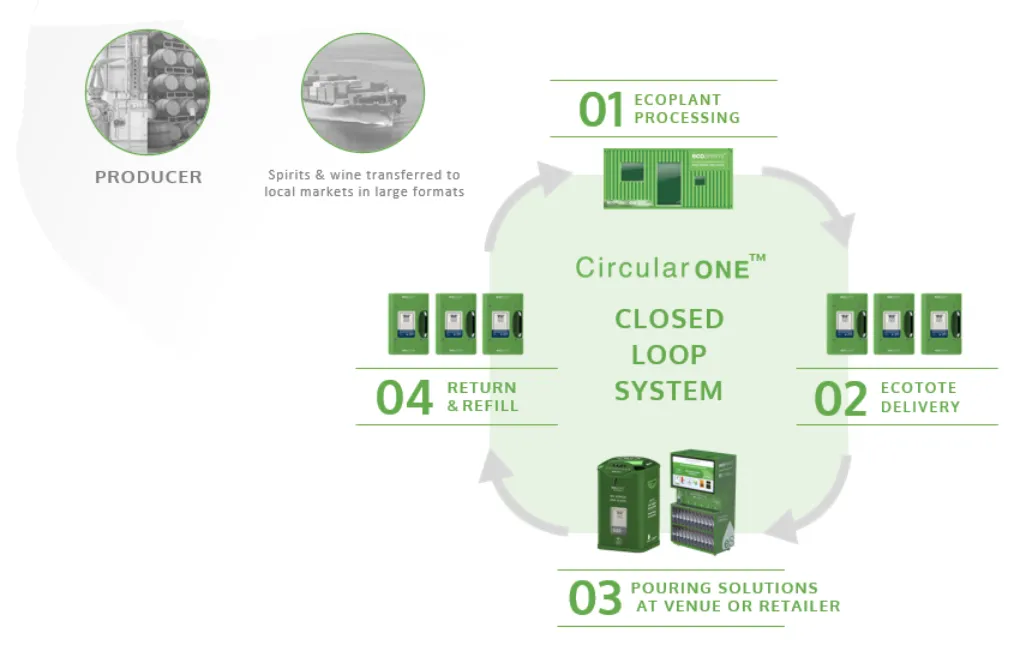
The Ecototes replace approximately four bottles of Bacardi’s Superior rum, which is among the most ordered spirits on Carnival cruises, according to the announcement. The containers can be used, cleaned and refilled about 100 times, Ecospirits says.
It announced a $10 million Series A fundraising round in May led by Closed Loop Partners. Other investors included major wine and spirits seller Pernod Ricard via its venture fund. After starting at bars and restaurants, the company found that the closed loop solution is particularly effective when there’s a geographic concentration of volume, like a city center or a casino. In the case of a cruise ship, there’s one point of loading for incoming supplies and unloading of waste, Gabie noted.
“Glass is actually a good material,” Gabie said, noting it’s durable and “endlessly reusable.”
“It's the single use of glass that's a problem,” Gabie said, noting the energy intensity to produce it.
Gabie said the partners are not disclosing costs associated with this pilot but, in general, adopting the closed-loop system offers potential savings due to eliminating packaging costs. The company says that a comparative life cycle emissions study performed by Deloitte found that Ecospirits’ technology could eliminate anywhere between 60% and 90% of the carbon dioxide associated with the packaging and distribution of premium spirits when compared with single use glass comparators.
The approach of cutting down on single-use containers with Ecospirits builds on Carnival’s work with supply chain partners to buy in bulk. Among Carnival’s sustainability goals is to partner with primary vendors to “reduce upstream packaging volumes” by 2030 and to “ensure near 100% reuse of packaging materials” by 2050. The company highlighted in its most recent sustainability report that it eliminated more than 500 million single-use items, including amenity bottles, yogurt cups and sauce packets, between 2018 and 2022.
The cruise industry faces its own host of climate issues, including around how it pollutes marine environments. In 2019 Carnival Corp. and subsidiary Princess agreed to pay a $20 million criminal penalty for environmental violations including dumping plastic waste into the ocean, after Princess Cruise Lines had paid more than $40 million for other pollution violations.



